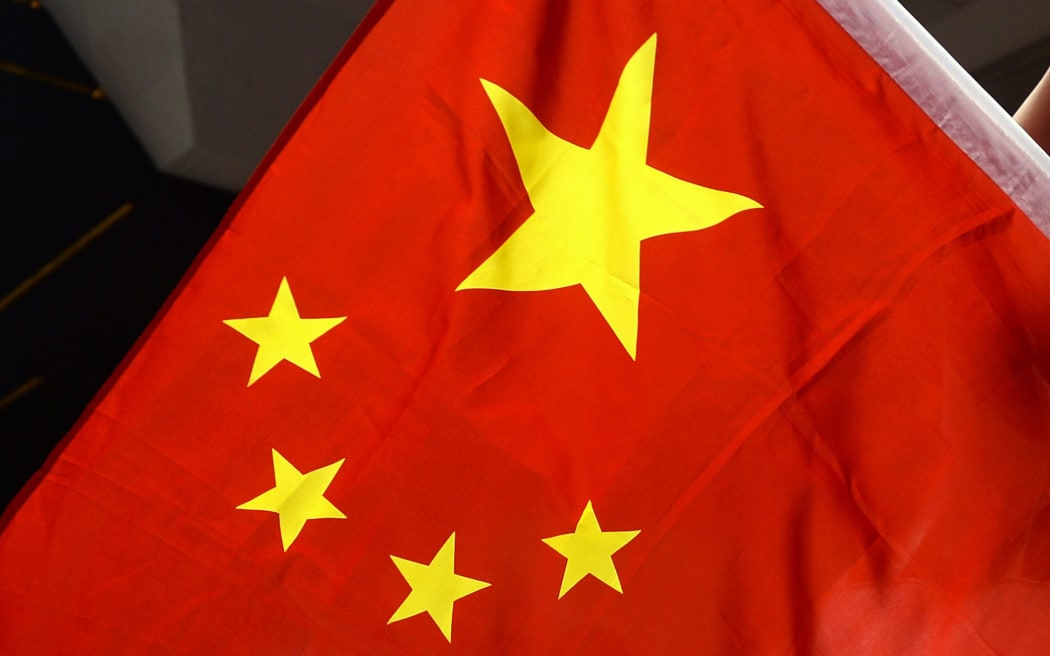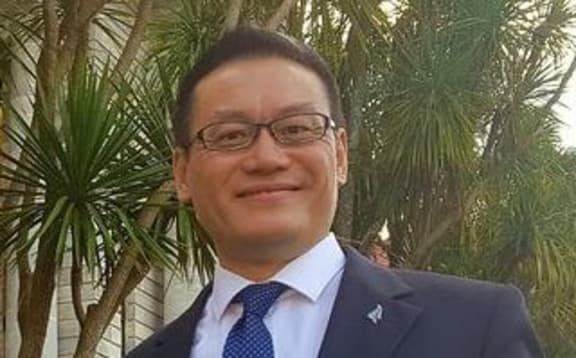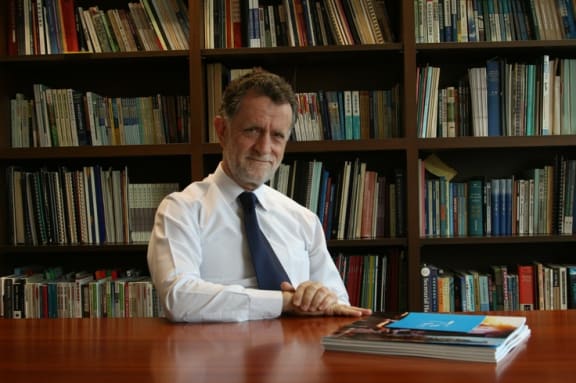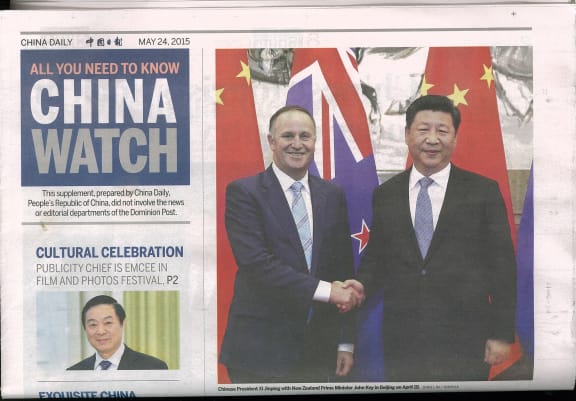Law changes to limit foreign influence on business and politics in Australia prompted calls for similar moves here this week. One of those sounding the alarm tells Mediawatch our government now needs to look at links between China and parts of our media. What’s the problem?

China flag Photo: AFP
Australia’s government this week unveiled sweeping reforms to national security laws designed to stamp out foreign influence over local politics. Prime Minister Malcolm Turnbull insisted the moves were not made with any one country in mind, but the media there weren’t shy about pointing the finger at China.
China wasn’t happy. Diplomatic protests followed and the Canberra bureau chief of China's state-run news agency Xinhua accused Australian media of "bombing the public with fabricated news about the so-called Chinese influence and infiltration in Australia."
It wasn’t the first time anxiety over this had been in the headlines there this year.
Back in June, the ABC’s investigative TV show Four Corners teamed up with Fairfax Media for a major media investigation which also highlighted the media. Four Corners said several Australian Chinese-language media outlets have forgone editorial independence in exchange for deals offered by China as part of the strategy of the Chinese Communist Party.

Anne-Marie Brady Photo: supplied
On Morning Report this week, Prof Anne-Marie Brady from University of Canterbury was urging New Zealand to take the issue seriously.
“We can't pretend it's not happening here. All our allies are dealing with this problem and we should partner with them,” she said.
"New Zealand's Chinese media has gone from being independent to being merged with the domestic media in China," she said. "When you pick up one of our local Chinese papers or go to Chinese language sites they look a lot like you would find in mainland China," she said.
"I've been reading our Chinese language media since the late 1980s and listening to the radio stations. It was a real delight hearing an authentic New Zealand Chinese voice. We're really not getting that now," Prof Brady told Mediawatch.
All major Chinese media outlets in China are strictly controlled by the state, which is in turn dominated by the Chinese Communist Party.
How does China influence what Chinese New Zealanders are getting from their media?
“Under Xi Jinping's leadership, the CCP is really keen to influence international perceptions and debates about China globally,” she told Mediawatch
Much of this she also covered in a paper called “Magic Weapons: China's political influence activities under Xi Jinping."
"Initially it was through Xinhua. Since the 1990s it's been offering New Zealand's Chinese media free content. More recently the policy has been to 'harmonise' overseas Chinese language media with mainland Chinese media. The links are much closer now," she said.
"That means closer interactions ... and instructions being given to our Chinese language media," she said.
Anne Marie-Brady told Mediawatch New Zealand Chinese media get instructions relayed by Chinese officials at meetings.
Her Magic Weapons paper says an event at the Langham Hotel in Auckland in June - attended by CCP media officials and representatives of the Chinese media in New Zealand - was one such occasion.
She said media were given "oral instructions on content and working relationships" at the event, which was also attended by Labour MP Raymond Huo.

Photo: RNZ
Raymond Huo's Labour Party biography says he is a is a regular Chinese media commentator on current affairs and a former Asian affairs journalist at the New Zealand Herald. He still calls himself "journalist" on Twitter.
Mediawatch asked him if he saw any discussions about in editorial policy or instructions passed on by Chinese officials at the Langham Hotel event.
"Not at all. I have no idea where that allegation is coming from," he told Mediawatch.
"The presentations I attended were purely on the influence of Chinese language social media," said Raymond Huo.
He said he attended the event because he had returned to Parliament in March and wanted to update himself on matters that were relevant to the Chinese constituency.
He told Mediawatch it was "difficult to say" if Chinese-language media were free to do what they wanted in New Zealand.
Signs of things to come?

John Fitzgerald Photo: supplied
Chinese state-owned media companies signed six agreements in Sydney last year with Australian outlets including Fairfax Media, the biggest owner of newspapers in New Zealand. State-run Chinese news outlet People’s Daily reported it signed a news and video sharing deal with Australia’s Sky News which would create ”a high-end talk show on the Chinese economy.”
China Radio International reached a deal to share news with Australia’s Chinese-language radio station 3CW.
"Individually, the deals offer compelling commercial opportunities. But viewed collectively, they underline the coordinated nature in which China's propaganda arms are seeking to influence how the Communist Party is portrayed overseas, the Sydney Morning Herald's Beijing correspondent Philip Wen wrote at the time.

China Watch Photo: RNZ
As if to illustrate the government's influence over Chinese media, a supplement prepared by state-run China Daily newspaper appeared in the Dominion Post the following week. It featured the New Zealand visit of the head of China's central publicity department - Liu Qibao - and his meeting with the-then Prime Minister John Key just after overseeing those media deals in Sydney.
At the time, Australian expert on China Dr John Fitzgerald told Mediawatch those media deals were "a victory for Chinese propaganda".
Anne Marie-Brady said some of those companies were operating here.
She said China Radio International had a subsidiary called Global CMAG which took over Auckland's 24-hour Chinese-language radio station FM 90.6 in 2011. She said it now sourced all its news from CRI and its Australian subsidiary. Global CAMG also runs Panda TV, Channel 37 on Freeview, and the Chinese Times newspaper.
Prof. Brady said the Commerce Commission should investigate whether offshore intervention in New Zealand's Chinese-language media breached competition laws and requirements for a free and independent media.

